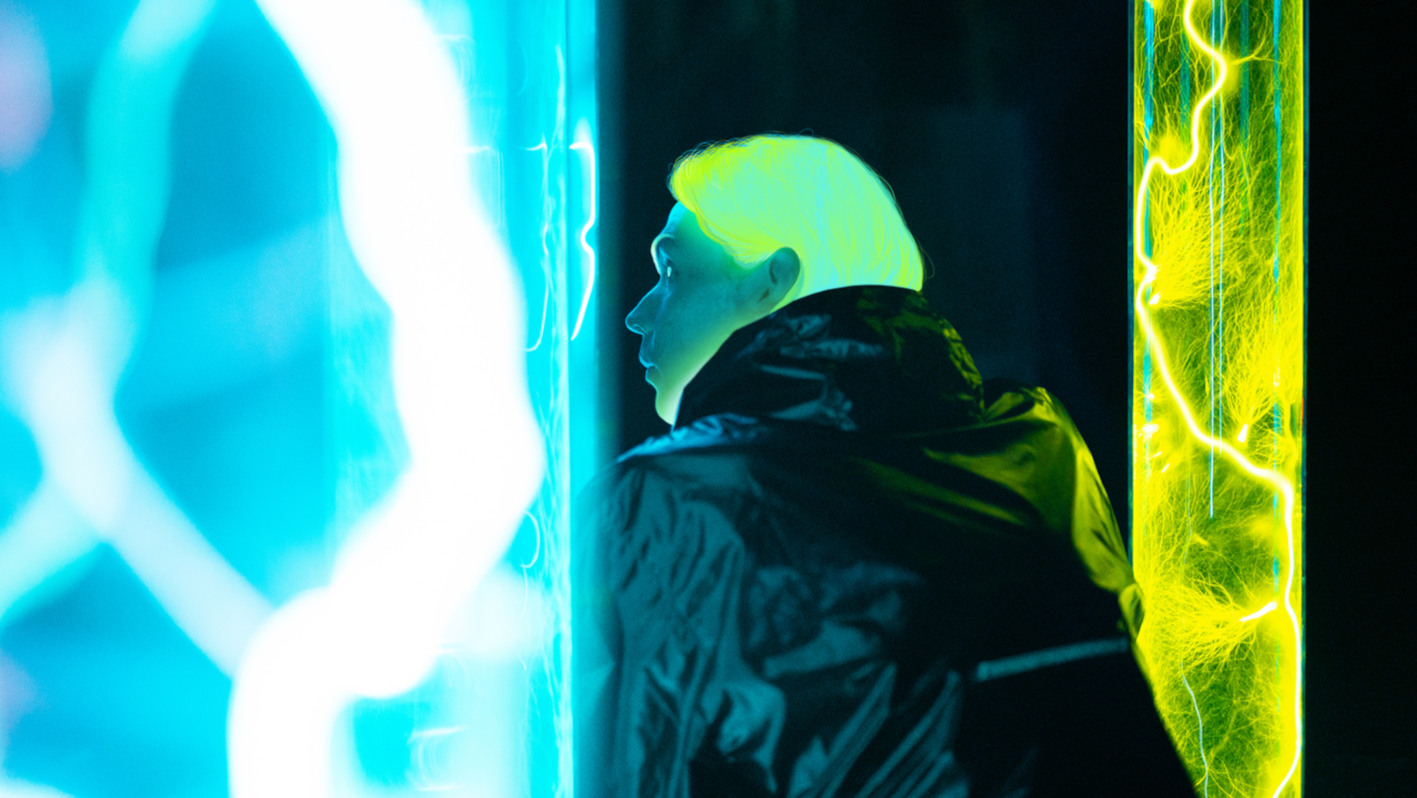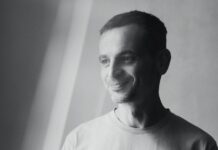Photo: Press (Nikita Zabelin)
Nikita Zabelin is one of the most important DJs and producers from Russia precisely because he does not try to be in the foreground of the scene, but rather strives to represent it as an ambassador as best as he can. His radio show and label Resonance Moscow is dedicated to highlighting the work of local talents, most of whom are unsigned and not known outside of the country. Also his contribution to our Groove podcast is dedicated to provide a diverse set with pieces by up and coming producers the world should pay close attention to. All of that however doesn’t mean that Zabelin doesn’t have a lot going on as a solo producer and live performer. Read our interview with Nikita Zabelin und listen to his mix below.
With your radio show and label Resonance Moscow, you highlight local talents rather than making international selections. Why did you found Resonance?
Resonance Moscow was founded 4 years ago, it was primarily launched as a radioshow on the city’s leading electronic music FM station. Actually before Resonance Moscow I already ran two other projects devoted to focusing on, consolidating and developing the electronic music scene in Russia. The key point of Resonance is to decrypt and describe the phenomenon of the „Russian wave“ in the world of electronica, what makes the music born here different. To proceed with this research, I invented and developed a communicational platform which involved a number of diverse activities dealing with electronic music and new Russian music. After I moved to Moscow from Yekaterinburg six years ago – there are 20 million people living in or nearby Moscow, while in Yekaterinburg it’s two million – I realised that nobody was interested in developing the scene of the country itself. There was no proper attention paid to the Russian producers in the capital. Moscow people were focusing more on their personal interests, and the same can be said for the other regions. So in Moscow it wasn’t hard for me to establish this platform because the niche was free and I already knew how to proceed, I just had to wait a bit to launch it in full force.
You have also mentioned that you were intially greeted with scepticism when you announced the project. How has the reception changed over the past four years – do you receive more music, is the audience more open-minded towards the shows and the records you have released?
Scepticism — yes. Before starting the weekly radioshow I just wanted to create a map with all the Russian artists, mainly electronic producers but not only them. You can check it on our website resonance.moscow. I had zero personal intentions about it and I still don’t. My point was to help people to get in contact with each other in this big country. I think communication is the main drive — if we don’t have it, there is no cultural growth or it’s insufficient. While nobody wanted to participate in local scene development activities because people understood there’s a lot of work to do, it was much easier to just fill out a form on our website, getting your submission verified and seeing your name on the map. Right after the map started getting filled with names, I initiated the launch of a weekly Resonance Moscow radioshow, which was approved by the station. That launch was a key moment that helped me make my dream come true. Now we are over four years on air and helped our audience to discover over 200 new names including infamous artists we could never reach before. On our website, we have a simple form to send us music. Every week, I get a package of everything that was submitted through the form from my assistant and take my time to carefully review it. The only criteria is good music. To date I suppose we have the largest database of new Russian music producers and I’m happy to be useful to these talents with our communication and promotion possibilities.
Most English-language news about Russia’s club focus on police raids, clubs been shut down or other forms of repression the community is facing. You stressed the importance of communication with the state authorities on this matter and said that „only a systematic, complex approach could help our scene survive“. How do you view the current situation and how could such an approach look like?
There is a cultural gap. They just don’t understand what we do and why we do all this. Moreover, it’s not a secret that very few people actually care about getting the proper documents and all the legal stuff right. In many cases, it’s just not possible to get valid papers within a reasonable timeframe. So no wonder that the police came to shut them down. But on the other hand, this unclear or semi-clear status still contributes to the „full-on underground“ spirit of such parties. It keeps the events on the edge. Actually, after cancellation of Boiler Room in Moscow I had to move two of my events already scheduled at the same location, and I lost a lot of money due to the venue change and all related costs. There’s nothing to do with it, I’m not angry, I’ve chosen this path a long time ago. The attitude of the state has always been unclear and it still is. On the other hand, a new venue — Mutabor — was opened by ARMA17 and Rabitza teams. Their previous locations were shout down by police and both teams had a crazy negative experience being in contact with those power structures. But it forced them to push open this heaviest door to the legal world, and it looks like it’s all good now. And please don’t forget what they currently do in Saint Petersburg – there are six techno night clubs open! Six! So as I can see it, it’s not about Russia — it’s about Moscow.
Under the alias Rhizome, a term taken from Gilles Deleuze and Félix Guattari’s Mille Plateaux, you dedicate yourself to 20th century avantgarde concepts and an exploration of the concept of time. For a recent project, you produced the music for a light sculpture by artist Christopher Bauder. How did the collaboration come together and how did you approach this rather unusual project?
Christopher Bauder is a big admirer of electronic music, he’s collaborated with musician like Robert Henke and Kangding Ray for his big scale installations. A friend of mine who works in Bauder’s team approached me when they were looking for a soundtrack for the documentation of his kinetic installation Circular. They felt that the meditative nature of my music as Rhizome would be a good match for for this intimate light installation that symbolizes the neverending circle of life. Watching the movement of light on the three floating circles, I dove into my older productions and used some of the unreleased material to score this piece.
For a recent show under the name Tesla, you have made use of two resonant transformers. What did you use them for and what is the general concept of this new live project?
I would name six transformations. The idea came to me last summer. I came to see this lightning machine and asked a guy to turn it on. Instead of just switching it on he turned the knob and I could see lightnings, but the main point was the sound. It came up from a zero note to a high pitched note. And I realized it was just an analogue oscillator. It was funny to explain the guy that I needed to control it with voltage control, etc. Then suddenly he asked „MIDI?“ and laughed: „Yes, we have MIDI on it“. I was a bit disappointed because I already imagined myself being an inventor, for sure. (laughs) That’s how the project started for me in Moscow. Later on it took me half a year to find out how we can actually can do this, how to work with that sound. I chose the most simple structure and lines: bass, kick, hat, snare, noise and one lead, that’s why it sounds so much like Byetone, who is one of my favourite artists. Anyway, the main point was not even the music. I felt that collective experience was more important, and it worked — literally every person was impressed. Now, when the first step is done, I’m already working on the second Tesla event. The whole concept of a cyber, post-apocalyptic internet era is in it, and we expand a lot and involve contemporary artists to the project, including photographers, make-up artists, video and 3D engineers, light-jockeys, etc. I really love Tesla and especially the next iteration of it because it’ll be so complex.
What was the idea behind your contribution to our Groove podcast?
Obviously this mix consists of new Russian names, all yet unreleased. And all these tracks will be featured in the next Resonance Moscow compilation series, it’s called Resonance Moscow News.
Last but not least: Where can we see you behind the decks in the near future and what are your plans as producer?
This year I decided to finally focus more on my own music, I try not to get a lot of gigs to avoid distraction. I need to allocate enough time to work on my new projects, including my industrial glam pop band where I’m not only a musician but also a singer. That doesn’t mean I take a full break from appearing on stage, you can listen to my sets, for example, in Portugal at a festival in July, and also Berghain in July.
Stream: Nikita Zabelin – Groove Podcast 210
01. R.Hz – Radio Wave
02. 088 – 8SX00073
03. Moon Rabbit – Ufo vs Inhabitants
04. Linja – liquid mirror
05. 08808_a – 02 Exu_
06. Винер – Slow Rider
07. Yung Acid – Tok
08. Confluence – Ebb and Flow
09. Gostwork – Alien Matter
10. Elijah Tarkhanov – Quite
11. Stas Karpenkov – It’s Usual Overflowing
12. Kvarta – Galaktec Driva
13. Werfol – Junglesoderzhashiy
14. Ваня Лимб – Темная Вода
15. The Euphoretic – Pat on the head
16. Lokodepo – 204.2
17. Space Modular – Vacuum
18. 08808_a – Take6 version
19. Sport – Strange Neighbour
20. Algorithm T – Vesna
21. Nikita Zabelin feat Neural Network Yandex – Rozhdenie





